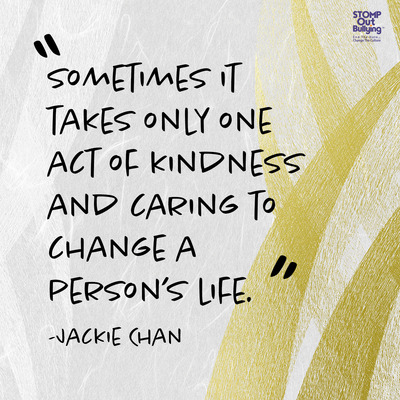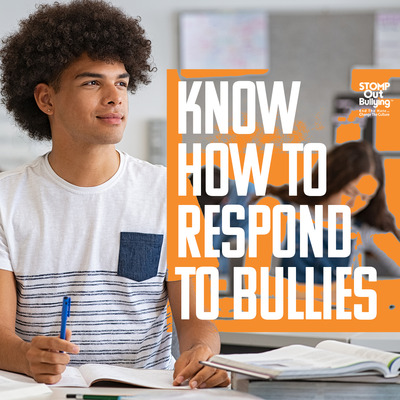
Blog and Articles.
District Court Enjoins Controversial Texas Social Media “Censorship” Law
Over the past several years, Section 230 of the Communications Decency Act, the federal law that provides social media platforms with immunity from liability for user content and was once hailed as “the law that gave us the modern Internet,” has gone from relative obscurity (at least outside of tech circles) to being a household…
The post District Court Enjoins Controversial Texas Social Media “Censorship” Law appeared first on Socially Aware Blog.
Social Links: Embedding social media posts can be considered copyright infringement…but is it?
Social Links is our ongoing series here at Socially Aware that rounds up current developments at the intersection of social media, policy, research, and the law. Embedding social media posts can be considered copyright infringement…but is it? A Manhattan federal judge ruled in August 2021 that the practice of embedding social media posts on third-party…
The post Social Links: Embedding social media posts can be considered copyright infringement…but is it? appeared first on Socially Aware Blog.
Cyberbullying in 2021 by Age, Gender, Sexual Orientation, and Race
In May-June 2021, we collected new data from a nationally representative sample of 2,546 US youth between the ages of 13 and 17 to better understand their positive and negative experiences online. This is the type of research we do on a regular basis, and it helps us to keep our finger on the proverbial…
The post Cyberbullying in 2021 by Age, Gender, Sexual Orientation, and Race appeared first on Cyberbullying Research Center.
Preventing Cyberbullying: Top Ten Tips for Adults Who Are Being Harassed Online
(For a formatted .pdf version of this article for distribution, click on the image above [or click here]). Spanish Translation Available Here Here are a few ideas on how to prevent adult online harassment: 1. STAY UP TO DATE WITH PRIVACY SETTINGS, Social media sites and programs are modifying and updating their privacy settings frequently.…
The post Preventing Cyberbullying: Top Ten Tips for Adults Who Are Being Harassed Online appeared first on Cyberbullying Research Center.
Responding to Cyberbullying: Top Ten Tips for Adults Who Are Being Harassed Online
(For a formatted .pdf version of this article for distribution, click on the image above [or click here]). Spanish Translation Available Here Here are a few ideas for what to do when adults are being cyberbullied: 1. DO NOT RETALIATE. Those who cyberbully want you to react. The problem is that if you respond angrily,…
The post Responding to Cyberbullying: Top Ten Tips for Adults Who Are Being Harassed Online appeared first on Cyberbullying Research Center.
New “Two-Click Cancellation” Button – German Exceptionalism for Subscription Terminations
As part of the new Fair Consumer Contracts Act, [Gesetz für Faire Verbraucherverträge; published in the Federal Gazette (Part I) no. 53/2021, p. 3433 et seq., full text publicly available (in German) Germany will soon require specific cancellation/termination mechanisms for consumer subscriptions. These mechanisms come on top of the updated EU-wide consumer contract rules under…
The post New “Two-Click Cancellation” Button – German Exceptionalism for Subscription Terminations appeared first on Socially Aware Blog.
Cyberbullying Warning Signs
Spanish Translation Available Here Cyberbullying impacts at least one out of every five middle and high school students. Many of those who experience it don’t tell anyone. If a child displays any of these signs, he or she might be involved. However, not all youth who are cyberbullied or who cyberbully others will display these…
The post Cyberbullying Warning Signs appeared first on Cyberbullying Research Center.
Social Media, Cyberbullying, and Online Safety Glossary
In our Glossary below, we define the terms you need to know in the realm of social media, cyberbullying, and online safety, so that you are increasingly informed about technological jargon as you work with the youth under your care. (Apart from the list below, you can also download a distributable PDF of our Social…
The post Social Media, Cyberbullying, and Online Safety Glossary appeared first on Cyberbullying Research Center.
Flash Mobs and Lip-Dubs to Combat Bullying
I was talking with an educator last week about enlisting students to help create a healthy, thriving, and fun school climate, and specifically brought up the idea of flash mobs and lip-dubs. Many of our students have talents and abilities which we should really tap in order to help us promote positive attitudes and behaviors across our campus. Unfortunately, we don’t do this often enough, even though student voice is such a powerful thing and can make way more of an impact than the efforts of well-meaning adults. A flash mob is a large group of people who suddenly break into synchronized song or choreographed dance — sometimes both – in a public place for the purposes of entertainment, artistic expression, or to bring attention to a cause. A lip-dub is a music video where a group of individuals are recorded lip-syncing a song, after which the original audio of the song is dubbed over the video in post-editing. Many students (including myself!) have grown up in dance – whether it’s...
Bullying, Cyberbullying, and LGBTQ Students
Bullying that specifically targets youth and young adults based on their sexual orientation or gender identity/expression has been a problem for decades. The increased utilization of technology among youth (and, well, just about everyone) has resulted in bullying behaviors moving online. As a result, cyberbullying perpetrated against lesbian, gay, bisexual, transgender, and queer (LGBTQ) youth has emerged. It is clear that more can be done to prevent these incidents of hate perpetrated online. This summary explores what the research says about the connection between bullying/cyberbullying and sexual orientation/identity, and discusses relevant strategies that youth-serving adults can implement. Hinduja, S. & Patchin, J. W. (2020). Bullying, Cyberbullying, and LGBTQ Students. Cyberbullying Research Center. Retrieved [insert date], from https://cyberbullying.org/bullying-cyberbullying-sexual-orientation-lgbtq.pdf Download the Guide The post Bullying, Cyberbullying, and LGBTQ...
Cyberbullying Fact Sheet: Taking Screenshots and Screen Recordings to Preserve Evidence
This Fact Sheet provides you with the instructions on how to create an image or video of what you see on any screen (on any device – your laptop, tablet, gaming console, Kindle, phone, iWatch, etc.) so that evidence of cyberbullying (or any other problematic behavior) can be saved and used for an investigation at school, or to send to a social media or gaming company to get an account taken down, or to give to the police. Securing digital evidence is so critical! Hinduja, S. & Patchin, J. (2021). Cyberbullying fact sheet: Taking screenshots and screen recordings to preserve evidence. Cyberbullying Research Center. Retrieved [insert date], from https://cyberbullying.org/making-cyberbullying-screenshots.pdf Download PDF The post Cyberbullying Fact Sheet: Taking Screenshots and Screen Recordings to Preserve Evidence appeared first on Cyberbullying Research Center.
Bullying During the COVID-19 Pandemic
One of the questions we have been asked most often over the last 18 months is whether bullying has gotten better or worse since the start of the COVID-19 pandemic. Early on, there was a concern that cyberbullying incidents in particular would increase as youth were spending more time online. Additionally, many young children were perhaps given premature access to technology with inadequate support or supervision as schools hurriedly moved to virtual educational activities and parents simply needed to survive the extended time children had at home. On the other hand, we have long known that bullying online is often connected to bullying at school and therefore fewer students at schools might translate to fewer problems online. Despite these speculations, however, I’ve mostly had to respond to the question about bullying during the pandemic by saying that we simply don’t know. Recently, though, initial research has emerged to provide some insight about the nature and extent of bullying...
Let Kindness Motivate Allyship, Not Niceness

Kindness and the benefits of allyship and understanding. Act on the basis of kindness instead of niceness.
How Bullying Victims Can Claim Power

How bullying victims can claim power by using comeback lines
World Bullying Prevention Month™ – Action Needed

October is World Bullying Prevention Month, schools and businesses are taking a stand against bullying
My Son’s First Phone
I was sitting in the bleachers of my son’s recent hockey practice when another parent came up to me and sheepishly asked: “Does your son have a phone?” “Funny you should ask,” I replied. Coincidentally enough, we gave our son his first full-functioning phone that very day. I don’t think this particular parent knows what I do for a living, so he wasn’t asking “the expert,” he was simply asking another parent. This led to a nice conversation about what I have learned about kids and devices in my research over the years. As I’ve traveled the world the last two decades speaking with parents about family technology issues, it is without a doubt the most frequently asked question I get: When should I give my child a phone? There is, of course, no easy answer to this question. It depends on a lot of factors, including the child, the parent(s), and the circumstances. Is the child mature enough to handle the responsibility? Are the parents prepared to provide guidance and instruction? Is...
Bullying: A Silent Mental Health Epidemic

Bullying is a Mental Health Epidemic. Bullying in all its forms is on the rise and is affecting
the mental health of our youth.
Clubhouse faces steep challenges in spite of new features and expanded access
Clubhouse, the former invitation-only social media darling that captured the attention of investors, social media early adopters, and competitors since its introduction in April 2020, now faces significant challenges as it strives to remain relevant and attract new and engaged users. Since our previous report on Clubhouse in March 2021, the social media app has…
The post Clubhouse faces steep challenges in spite of new features and expanded access appeared first on Socially Aware Blog.
Tell Someone To ‘Kill Themselves” And You Could End Up In Jail

Michelle Carter was found guilty of involuntary manslaughter after telling boyfriend to kill himself
NEW BOOK SALUTES “100 MAKING A DIFFERENCE”

Celebrity photographer John Russo and philanthropist and entrepreneur Quinton van der Burgh who heads Generosity Water Africa have collaborated in a celebration of philanthropic individuals and organizations.
“End to Cyber Bullying” (ETCB) is a non-profit organization aimed at combating cyberbullying in this modern age of advancing technology.
This multi-award-winning anti-cyberbullying nonprofit, provides expert help and advice for cyberbullying victims and their families.
The socially Aware Blog covers the law and business of social media around cyberbullying and online attacks.

If you or a loved one are currently being victimized online, you can always speak with a support advocate 24 hours a day.
For contact and press inquiries, please complete all fields below. I look forward to hearing from you and will get back to you shortly. - Raven
Influencer Articles:
Zoe Sugg Interview
Monica Lewinsky Interview
Chessie Kingg Interview
Cyber Bullying Resources:
Video about bullying
Government support website
Contact a support agent







